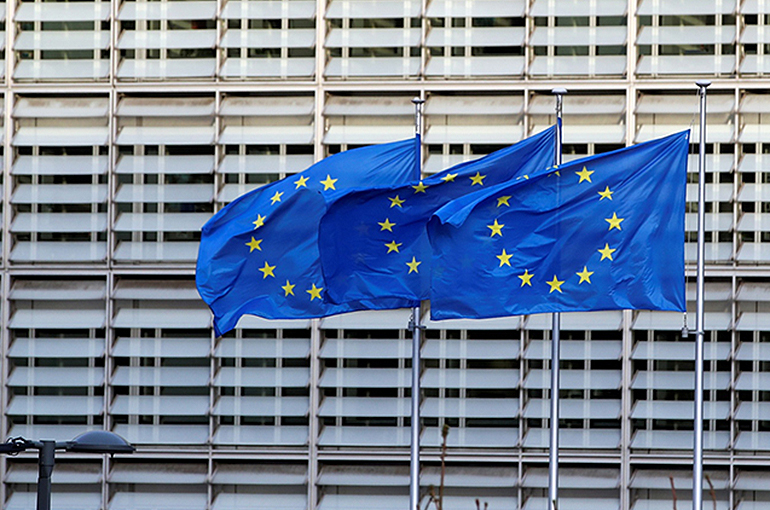 EU Customs Registration for Chinese EV Imports Sparks Retroactive Tax Worry
EU Customs Registration for Chinese EV Imports Sparks Retroactive Tax Worry(Yicai) March 11 -- The China Chamber of Commerce to the European Union said it is concerned about potential retroactive tariffs on Chinese electric vehicles as the EU began customs registration of EVs imported from China.
In EU trade remedy investigations, customs import registration is one of the preconditions for the European Commission to decide whether to levy retroactive taxes, and the chamber was disappointed with the EU requiring the registration of EVs from China while the investigation was still underway, it told Yicai on March 7.
The EC instructed customs authorities to register China EV imports for nine months starting on March 7, according to a document published in the Official Journal of the EU on March 6.
The EC launched an anti-subsidy investigation into China EV imports last October, with such shipments rising on average 11 percent a month from October to January and soaring 14 percent from a year earlier, the EU’s executive arm noted.
As a result, more and more EU carmakers will face the risk of lower sales and production, adversely impacting their performance and employment, the commission said.
“The recent surge in imports of EVs from China to the EU indicates growth in demand in the European EV market and Chinese carmakers' confidence and determination to continue their development in Europe,” the China Chamber of Commerce noted.
“We hope Europe can protect the rights and interests of Chinese firms and create a fair, impartial, and non-discriminatory business environment for them in Europe and join hands with Chinese companies to contribute to the global low-carbon transformation,” it added.
Both the United States and the EU generally levy taxes from the date of the initial ruling, so when importers and exporters sense this, there may be large-scale imports in the short term, said Hou Xiaohua, a partner at Commerce & Finance Law Offices and a lawyer with experience in anti-dumping and anti-subsidy cases.
Countries believe such sudden growth in imports is unfair, and US and EU authorities will likely begin to impose taxes 90 days before any initial ruling date, Hou added.
The future legal consequences are that taxes on registered imports can be levied retroactively 90 days after the initial ruling, according to Hu Fumao, a senior partner at Beijing Dacheng Law Offices Chongqing. “This is a trade protection tool, and the EU is one of the countries and regions to use it most frequently,” Hu added.
Editor: Martin Kadiev